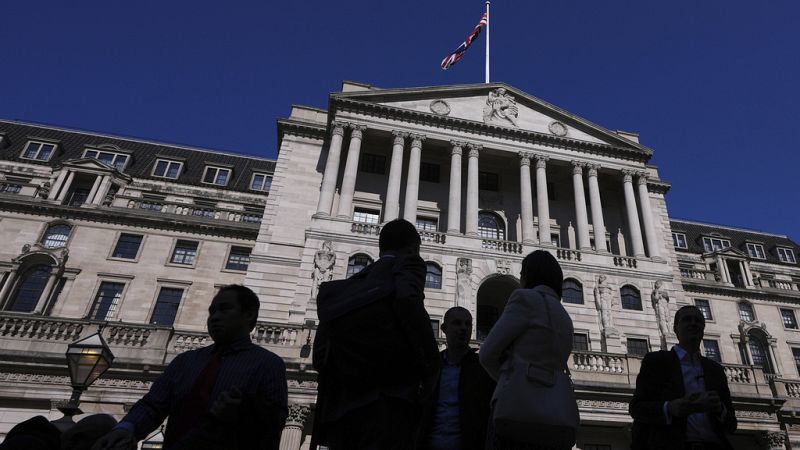
The Bank of England (BoE ) held its main interest rate at 4% on Thursday as inflation in the UK remains stubbornly high.
The decision was widely anticipated, as was the split of votes on the nine-member Monetary Policy Committee. Seven of the panel backed the decision, while two voted for a quarter-point reduction to 3.75%.
"Markets were pricing in a 98% likelihood that rates would stay at 4.0%, because so far, we are not seeing enough progress in bringing inflation down to give room for manoeuvre on rates," said Steve Clayton, head of equity funds at Hargreaves Lansdown.
Inflation figures released on Wednesday showed prices increased by 3.8% in the year to August, above the level the Bank of England would like. This is coupled with slowing wage growth and flat GDP growth in July.
The BoE's decision comes a day after the Fed cut key interest rates in the US. "This could shore up the pound and actually help keep the cost of imported goods down," said Nick Saunders, CEO of stock trading platform Webull UK. He added: “This is good for consumers, but investors may see difficult conditions continuing, particularly for tech and property firms. In the current environment, inflation risk is more pressing than lack of growth, and the Bank has to deal with this first.”
All eyes now turn to the next rate-setting meeting in November.
If the bank carries on cutting interest rates once every three months, as it has since August 2024, then it will make a further cut in November. It last reduced interest rates in August.
However, economists remain split as to whether another cut will be forthcoming since inflation has proven to be stickier than anticipated, partly because of relatively high wage increases.
"The Bank will be watching employment and growth data closely for now, because it will worry about choking off growth if interest rates stay too high for too long, but for now, its hands look tied,” said Clayton at Hargreaves Lansdown.
Lindsay James, investment strategist at Quilter, said: "The Monetary Policy Committee at the BoE has previously said it expects inflation to peak in September before falling back towards target."
He added: "Markets are not fully pricing the next rate cut in until the end of April next year."
James also expects economic growth to be desperately lacking for the remainder of the year. "Whether or not the UK economy can wait until April before the next rate cut remains to be seen ... for now, inflation is the big concern and appears to be an issue neither the BoE nor the government can tame.”







